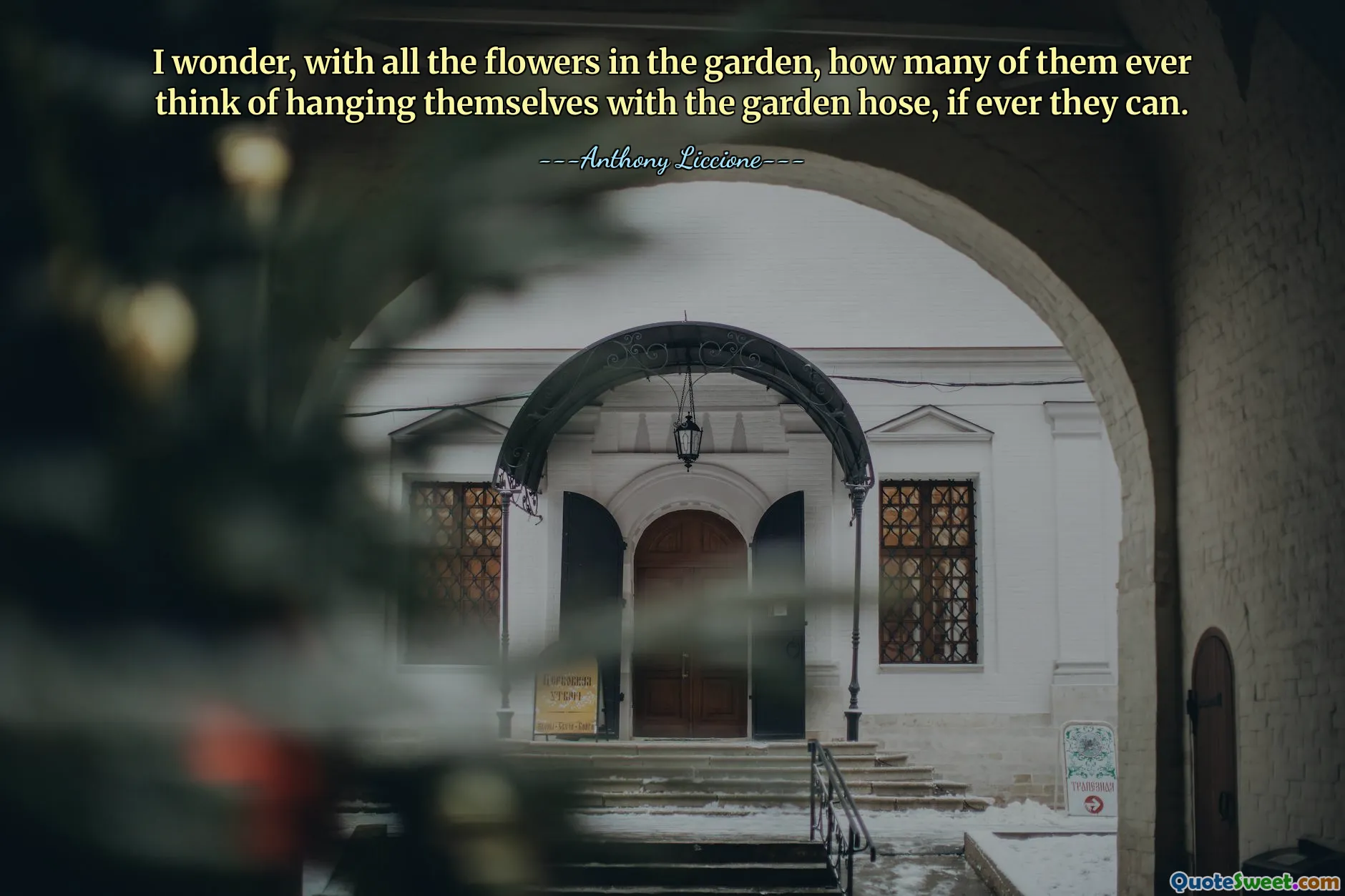
I wonder, with all the flowers in the garden, how many of them ever think of hanging themselves with the garden hose, if ever they can.
This quote presents a deeply unsettling and perplexing juxtaposition between nature's beauty and the dark thoughts that can lie beneath the surface, not only in humans but poetically attributed even to flowers. It serves as a somber reflection on the themes of inner turmoil, despair, and the hidden struggles that may afflict beings regardless of their bright and seemingly carefree surroundings. The flowers, symbols of life, renewal, and beauty, stand in stark contrast to the morbid imagery of self-harm suggested by the act of hanging — an action that speaks to profound despair and a desire for escape from pain.
This conundrum invites the reader to ponder the hidden depths of suffering that might exist unnoticed. Much like people, who may appear vibrant and joyful outwardly, there may be internal battles that are unseen by the world. The metaphor of flowers potentially grappling with such thoughts is a powerful one, evoking a sense of empathy and the importance of recognizing that struggles are not always visible. It beckons us to approach the world and others with greater compassion and sensitivity, understanding that beneath appearances lie complex emotional states.
Moreover, this reflection can be viewed as a commentary on the human condition itself: amidst abundance and beauty, despair can still take hold. It underscores the paradox of existence where joy and sorrow coexist and often intermingle in the depths of consciousness. Anthony Liccione's words poignantly capture this complexity, urging mindfulness of the silent despair that may cry beneath even the most serene facades.











